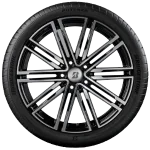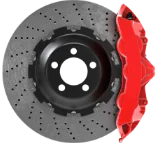Get Ready for Winter – Vehicle Checks & Winter Tyres
Article written by Bush Tyres
As we head into the colder winter months, NOW is the time to think about getting your vehicle winter ready. Whether you are looking for a free winter vehicle check for your car or van, or simply debating if you need winter tyres, we can help!
FREE Winter Vehicle Checks
To help you and your vehicle get ready for winter, we offer a FREE Winter Car Check, including Tyre Air pressure, Condition and Tread depth (ACT), Battery Checks, Wheel Alignment and fluid levels. To take advantage of our FREE winter checks, book today!
Once your vehicle has been checked our trained technicians will discuss the report with you and provide help and guidance where needed.
Why Winter Tyres?
Winter tyres are specifically designed to cope in difficult and hazardous winter conditions. They offer safer driving on ice and snow during the winter season. With below freezing temperatures, it is important to have tyres that offer more safety when temperatures are low, and roads are covered by ice and snow.
Even in this part of the world where we don’t experience extreme winters, the right kind of tyres play an important role in road safety. Because of the design differences between summer and winter tyres (also known as cold weather tyres), it’s important to have the right tyres on your car when the weather changes.
The difference between summer and winter tyres
The difference between the types of tyres goes much deeper than simply tread patterns. Winter tyres have a higher natural rubber content, this keeps them supple even when it’s cold. The softer the tyre, the more able it is to grip the road surface. Summer tyres harden more quickly in cold weather. Winter tyres are designed to perform best at temperatures lower than seven degrees Celsius.
Winter tyres have thousands of small grooves, known as Sipes, these disperse water to prevent aquaplaning but also help the tyre ‘bite’ into the snow, slush, and ice giving enhanced grip. The deeper tread on a winter tyre also provides cavities to help pick up snow. This collected snow intensifies the grip effect of the tyre with increased snow-to-snow contact helping you retain traction.
Summer tyres don’t need to be as soft a compound, warmer air and road temperatures are enough to help them adhere to the tarmac. This allows manufacturers to use a harder rubber compound to improve tyre life and dry performance.
Swapping Tyres - summer tyres to winter tyres
It’s important to look at temperature when considering when to swap your tyres. Summer tyres work best at temperatures above seven degrees, when the weather begins to warm up, take your car to a professional who can swap over the tyres.
As well as looking at temperature, look at road conditions too. If it’s beginning to warm up but it is very wet or there’s the threat of frost, you might want to consider keeping your winter tyres on for another week or two.
When going from summer to winter tyres, keep an eye on the frost in the mornings and pay attention to the weather forecast, which will give you advance warning of when it’ll start to get colder.
How to store your winter tyres
To protect the integrity of the rubber and extend the life of your winter tyres, make sure they are stored correctly. You have several options, from self-storage at home to a professional tyre storage service (these facilities are known as ‘Tyre Hotels’).
Your winter tyres should not be left unused without proper storage for more than a month, this includes tyres left sitting on your car, as well as those that have already been removed. Leaving the tyres outside when they’re not being used can negatively impact their performance in the future.
Before storing your tyres, give them a clean with a mild car shampoo to remove dirt and salt. If you leave this sitting on your tyres while they’re in storage, it could degrade the rubber. Make sure to rinse the tyres thoroughly and dry them thoroughly.
Your storage spot should be dry, cool, and out of direct sunlight. You also need to make sure your tyres aren’t too close to any hot pipes or heat generators as this can also affect their condition.
Exposure to any of these elements can damage the rubber causing tyres to crack. If you want extra protection for your tyres, you can buy special bags that will protect them from any substances that could harm the rubber.
Be careful when stacking your stored tyres as this can present a safety hazard if they fall. Ideally, you’ll store your tyres on a rack but if that’s not possible, try not to make your stack higher than waist height as this means you’ll be able to move the with less risk of hurting yourself.
Tyre storage in Lincolnshire
If you want the professionals to take care of your winter tyres during the summer months, Bush Tyres can store your winter tyres for you. Customer’s tyres are kept separate from main stock and are stored according to manufacturer guidelines.
The facility is secure and has 24-hour alarmed security. Customers have peace of mind that their wheels and tyres are going to be properly prepared and stored safely over the off seasons. Bush Tyres will also remind you when you’re due to swap seasons. Ask your local branch today.
Tyre storage is subject to space and availability at your local branch, pre-booking advised but availability not guaranteed.
Want to find out more about Winter Tyre options for your vehicle? We can also offer All Season Tyres; these are ideal for the UK climate and in most areas of the country can be left on the vehicle all year round. To book your FREE winter car check and to discuss the Winter and All-Season tyre options for your vehicle, click the link below to make an appointment.
Book FREE Winter Check


 Tyres
Tyres Services
Services Fast Fit
Fast Fit Offers
Offers

